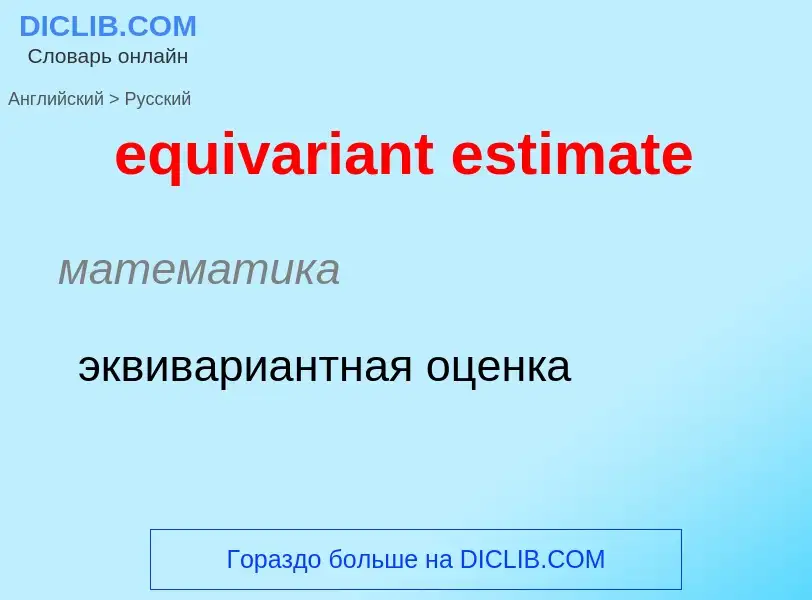Traduzione e analisi delle parole tramite l'intelligenza artificiale ChatGPT
In questa pagina puoi ottenere un'analisi dettagliata di una parola o frase, prodotta utilizzando la migliore tecnologia di intelligenza artificiale fino ad oggi:
- come viene usata la parola
- frequenza di utilizzo
- è usato più spesso nel discorso orale o scritto
- opzioni di traduzione delle parole
- esempi di utilizzo (varie frasi con traduzione)
- etimologia
equivariant estimate - traduzione in russo
математика
эквивариантная оценка
математика
эквивариантная когомология
математика
эквивариантное отображение
Wikipedia
In mathematics, equivariant cohomology (or Borel cohomology) is a cohomology theory from algebraic topology which applies to topological spaces with a group action. It can be viewed as a common generalization of group cohomology and an ordinary cohomology theory. Specifically, the equivariant cohomology ring of a space with action of a topological group is defined as the ordinary cohomology ring with coefficient ring of the homotopy quotient :
If is the trivial group, this is the ordinary cohomology ring of , whereas if is contractible, it reduces to the cohomology ring of the classifying space (that is, the group cohomology of when G is finite.) If G acts freely on X, then the canonical map is a homotopy equivalence and so one gets:

